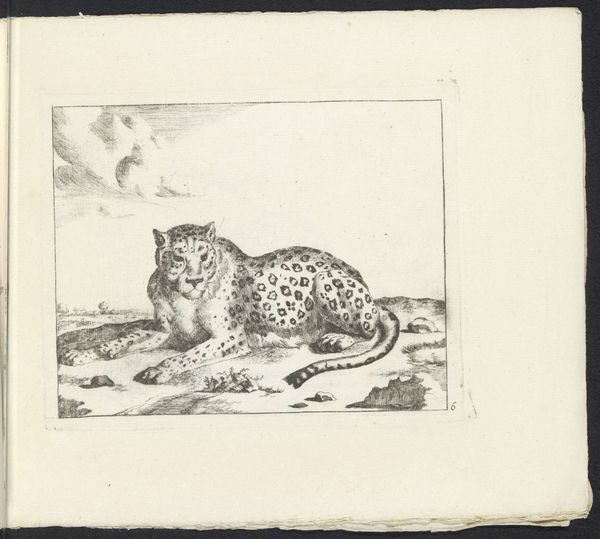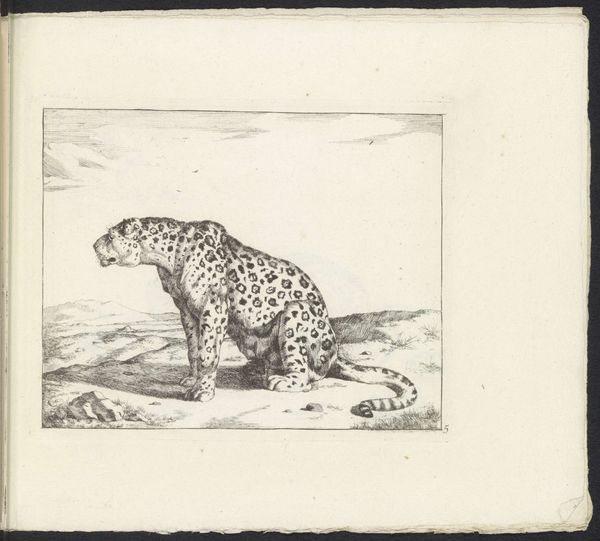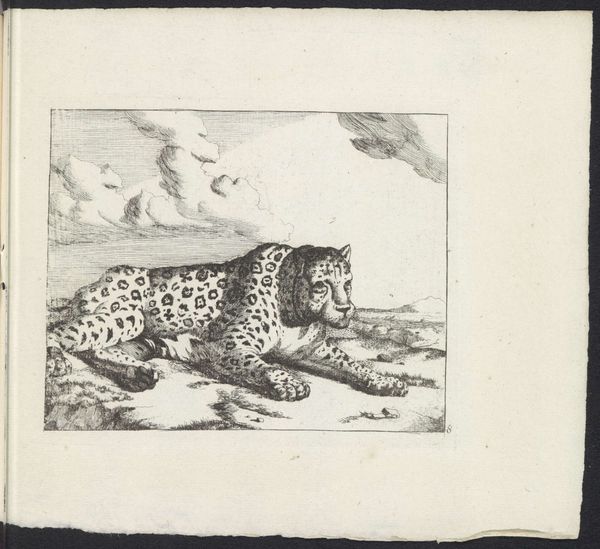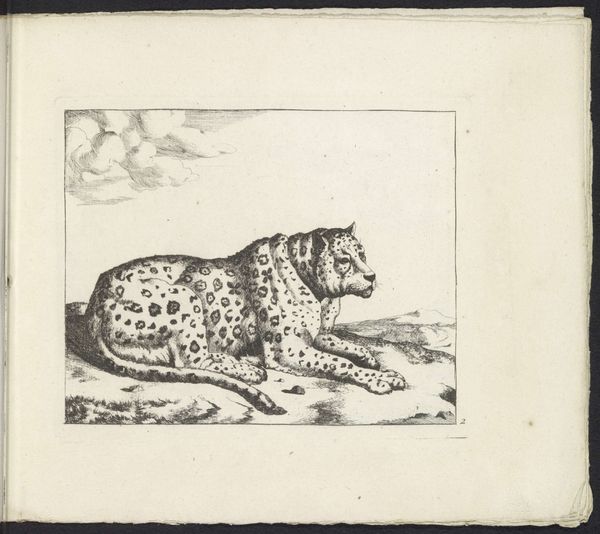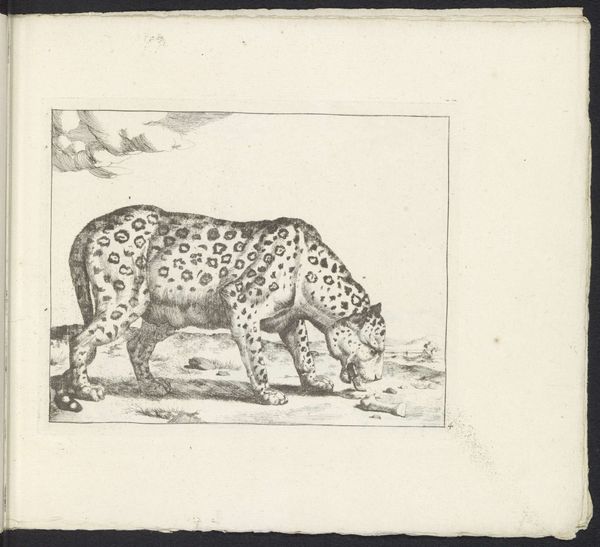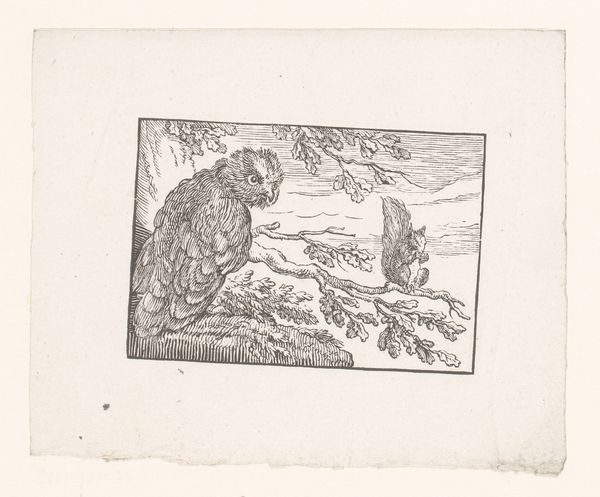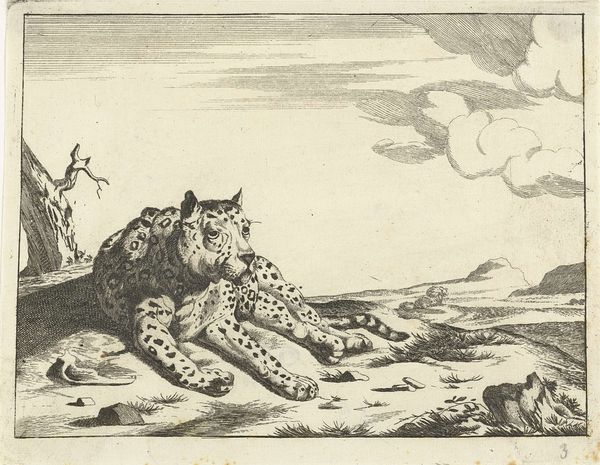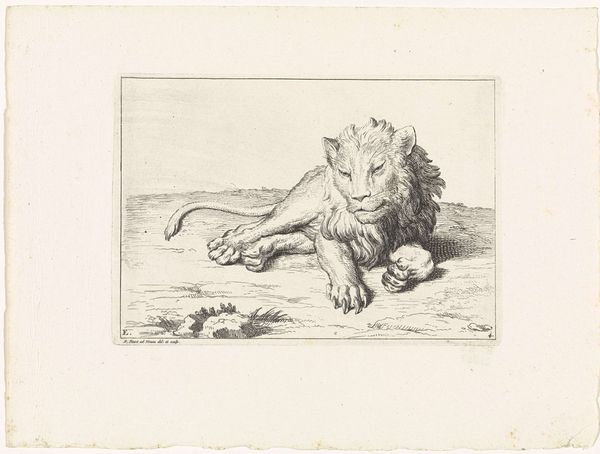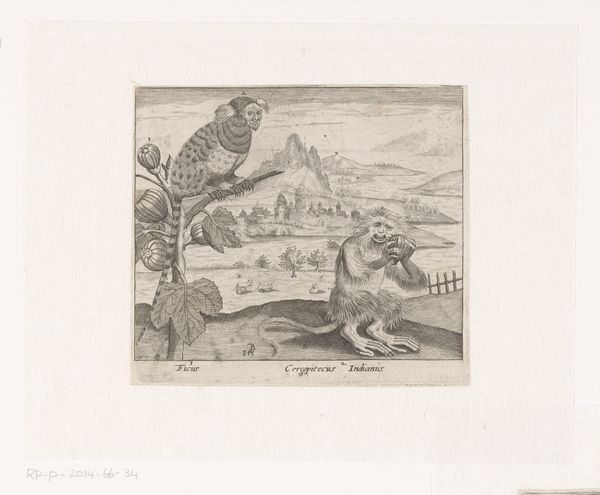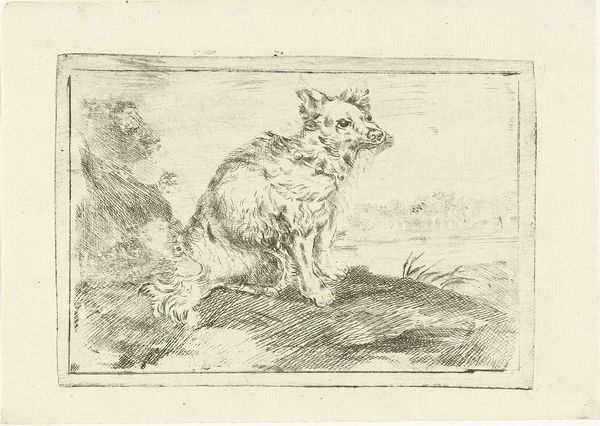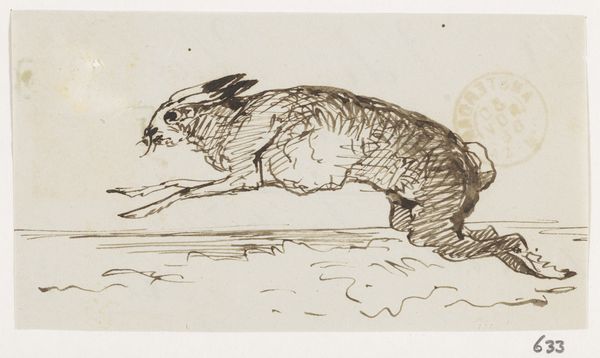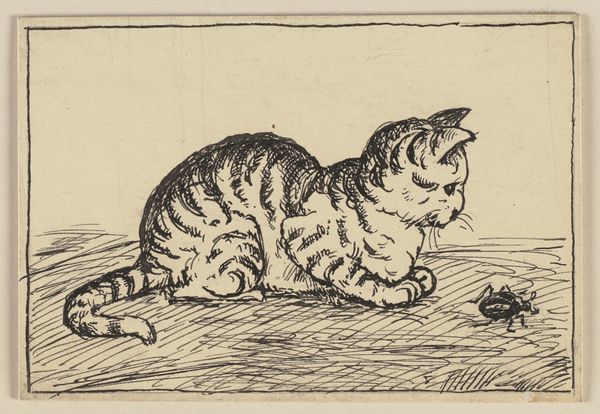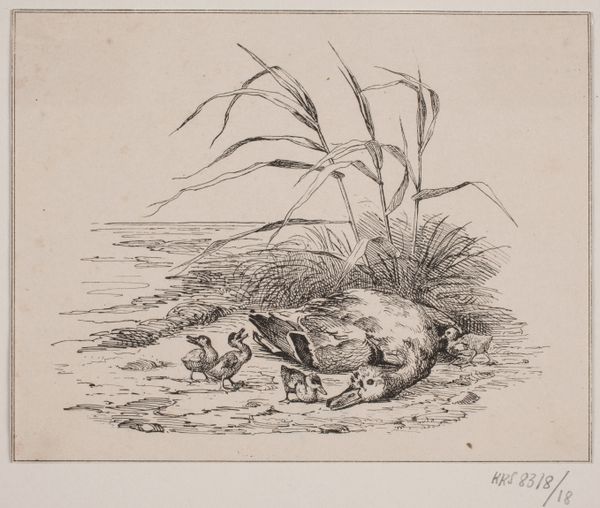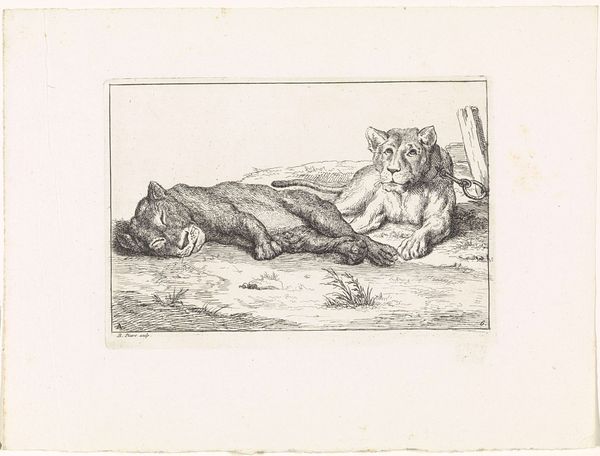
drawing, ink
#
drawing
#
quirky sketch
#
baroque
#
pen drawing
#
animal
#
pen illustration
#
pen sketch
#
landscape
#
figuration
#
personal sketchbook
#
ink
#
ink drawing experimentation
#
pen-ink sketch
#
line
#
pen work
#
sketchbook drawing
#
sketchbook art
#
realism
Dimensions: height 140 mm, width 173 mm, height 210 mm, width 270 mm
Copyright: Rijks Museum: Open Domain
Curator: Welcome. We're looking at Marcus de Bye's "Liggend luipaard, van voren gezien, de poten naar rechts," created sometime between 1657 and 1677. It’s an ink drawing. Editor: The animal seems so out of place! The drawing style itself has an almost cartoony and innocent feel which starkly contrasts with the dangerous leopard. Curator: Well, think about the context. In the 17th century, exotic animals like leopards were becoming more familiar to Europeans, yet remained largely symbolic stand-ins. De Bye’s access likely came through studies of menageries rather than direct fieldwork. His material, ink on paper, was readily available. It was reproducible too. Editor: It is true! What meanings could such an animal, in its image, possess for the Dutch population of this time? Was it supposed to inspire fear? It lies down, resting, a bit pudgy; I suppose this image of the leopard is removed from the original idea that people might have of it. Curator: Yes, think of the image circulation. Prints like these offered glimpses into the wider world but transformed real creatures into commodities to consume. There is a fascinating tension. This leopard could easily symbolize both power and vulnerability simultaneously, reflecting European perspectives on distant lands. Editor: Power, perhaps in its symbolic value and recognizability? Yet also the vulnerability of it, caged and placed into a medium that can be replicated and mass-produced? Fascinating how an artistic rendition shifts the beast's implicit symbolism! Curator: And notice the economy of line. De Bye doesn't use an abundance of detail. Instead, it communicates form and texture effectively and swiftly with what I believe is confidence borne from access and frequent drawing, almost mechanical. Editor: Precisely! Looking at this drawing makes me wonder how our present-day symbolisms will transform throughout future eras of global connection and media. Food for thought indeed. Curator: I agree. This small drawing encapsulates larger ideas of production, circulation, and European perception in that moment, allowing us to trace this artwork's context, even today.
Comments
No comments
Be the first to comment and join the conversation on the ultimate creative platform.
